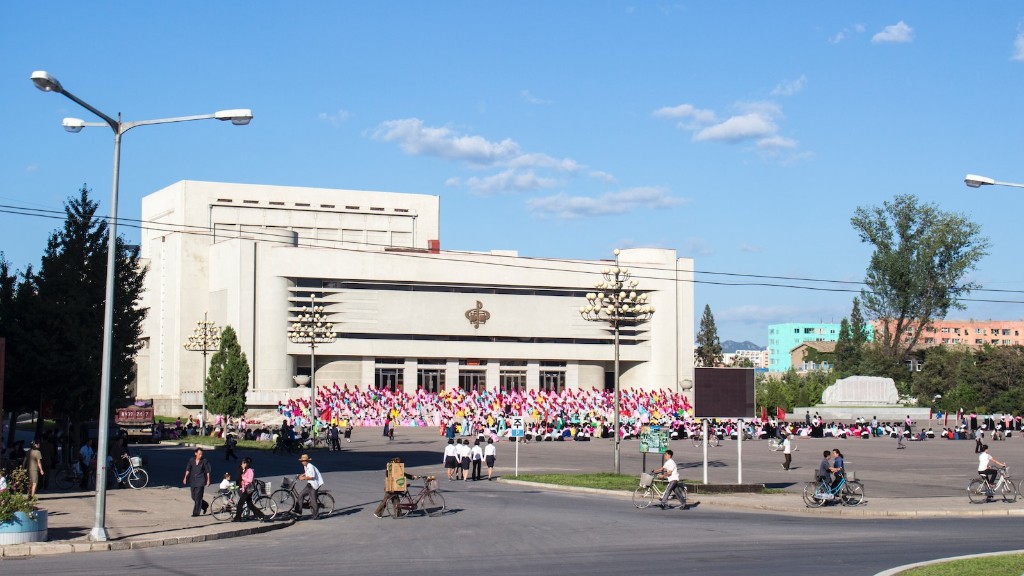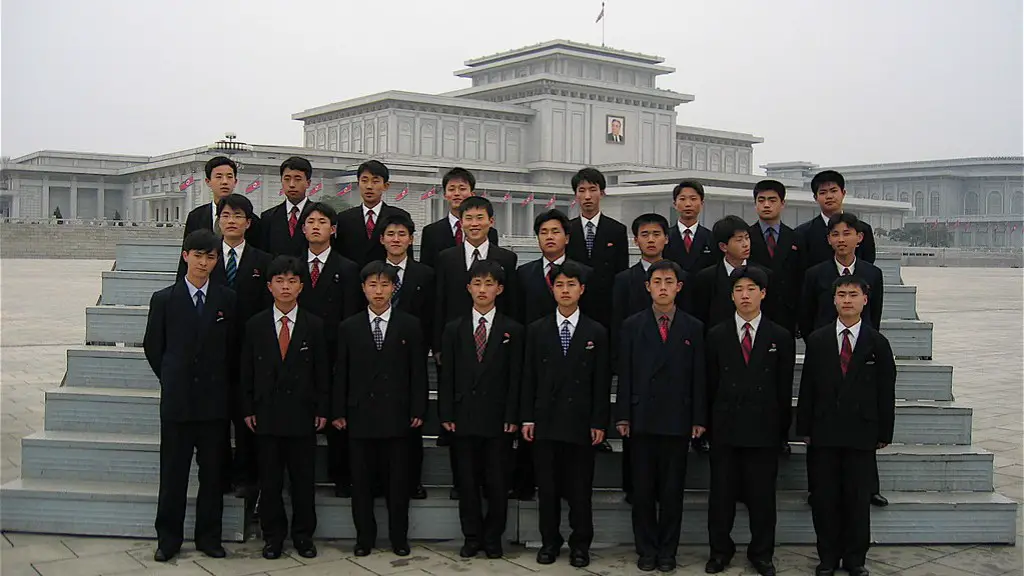Background information
North Korea is a rapidly developing nuclear power, but when did the regime in Pyongyang first acquire nuclear weapons? It is widely accepted that North Korea has possessed nuclear weapons since 2006. This, however, does not tell the full story. North Korea has been trying to acquire nuclear weapons for years and has been researching the technology since the early 1990s.
In 1994, after years of negotiations and warnings, North Korea and the United States signed an agreement known as the Agreed Framework. Under the agreement, North Korea agreed to halt its nuclear weapons program and the US agreed to aid in the economic development of North Korea.
Unfortunately, the agreement was not kept and North Korea’s nuclear weapons program continued. In 2002, US President George W. Bush declared North Korea to be one of the “Axis of Evil” countries and in 2003, North Korea announced that it had withdrawn from the Non-Proliferation Treaty.
At this time, many experts believed that North Korea was close to acquiring nuclear weapons, however, it was not until 2006 that North Korea tested its first nuclear weapon.
North Korea’s nuclear technology
North Korea’s nuclear weapons program is based on technology from both Russia and China. North Korea began purchasing equipment and materials from China in the early 1990s and later partnered with Russia to complete the development of its nuclear weapons program.
North Korea began experimenting with plutonium-based weapons in the mid-1990s, but has since developed and tested uranium-based weapons. Since 2006, North Korea has tested numerous conventional and nuclear weapons and continues to increase the sophistication of its nuclear program.
Currently, North Korea is believed to possess at least 20-30 nuclear weapons and has been reportedly working on miniaturizing nuclear weapons to fit on ballistic missiles.
International perspective
The international community has expressed concern over North Korea’s nuclear program, but there has been a lack of effective international action to limit the program. The United Nations Security Council has passed multiple resolutions condemning North Korea’s actions and imposing economic sanctions, however, these have had limited success.
The US and South Korea have also taken a hard-line approach to North Korea and have imposed additional economic and military sanctions. Despite this, North Korea has been able to develop its nuclear weapons program and has been increasingly aggressive in its rhetoric and actions.
North Korea’s motives
The primary motivations for North Korea’s development of nuclear weapons is believed to be to gain international recognition and legitimacy as a nuclear power, as well as to provide a deterrent against external threats.
North Korea is also believed to be seeking to use its nuclear weapons as a bargaining chip in diplomatic negotiations with the US and other countries. It has demanded concessions in exchange for a freeze on its nuclear program, however, the US has thus far been unwilling to make any major concessions.
Impact of North Korea’s nuclear weapons
North Korea’s development of nuclear weapons has had a major impact on the region and the world. North Korea has used its nuclear weapons program as a tool to extract concessions from other countries, as well as a way to increase its own legitimacy as a nuclear power.
The development of nuclear weapons by North Korea has also created a situation of heightened tension and mistrust in the region. North Korea’s provocative actions have caused other countries in the region to further militarize and increase their own defense capabilities.
Impact on non-proliferation efforts
The impact of North Korea’s development of nuclear weapons extends beyond the region and has had a major impact on the global non-proliferation efforts. North Korea’s nuclear weapons program has undermined the foundations of the Non-Proliferation Treaty and has made it more difficult for other countries to agree to non-proliferation agreements.
The development and proliferation of nuclear weapons by North Korea has also raised fears that other countries may seek to acquire their own nuclear weapons and has increased the risk of nuclear war.
Geopolitical implications
North Korea’s development of nuclear weapons has had major geopolitical implications. It has created a situation of tension with China and South Korea, as well as strained relations between North Korea and the United States.
In addition, North Korea’s development of nuclear weapons has caused other countries in the region to increase their own defense capabilities and has increased the risk of military conflict.
US approach to North Korea
The US has taken a hard-line approach to North Korea’s nuclear program and has sought to pressure the regime into giving up its nuclear weapons. The US has imposed economic and military sanctions on North Korea and has sought to rally other countries in the region to its side.
The US has also made efforts to enter into diplomatic negotiations with North Korea, however, thus far these attempts have been unsuccessful. It remains to be seen if the US will be able to find a diplomatic solution to the situation.
Sanctions against North Korea
The international community, led by the United States, has imposed numerous sanctions against North Korea in an effort to limit its access to materials and technology necessary for the development of nuclear weapons.
These sanctions have had some success in limiting North Korea’s access to materials and technology, however, the regime has been able to acquire materials and technology through circumventing the sanctions and by seeking other sources of supplies.
In addition, the sanctions have had a negative impact on the economy in North Korea and have caused further suffering to the people of the country.
Concerns of North Korea’s nuclear program
The development of nuclear weapons by North Korea has caused concern in the international community due to the increased risk of nuclear war and the proliferation of nuclear weapons. In addition, many experts believe that North Korea’s nuclear program is a destabilizing force in the region and could lead to a new arms race.
The international community has expressed concern over the North Korean nuclear program, however, there have been few effective measures taken to limit the program. It remains to be seen if effective measures can be taken to limit North Korea’s nuclear program and prevent further proliferation of nuclear weapons.


